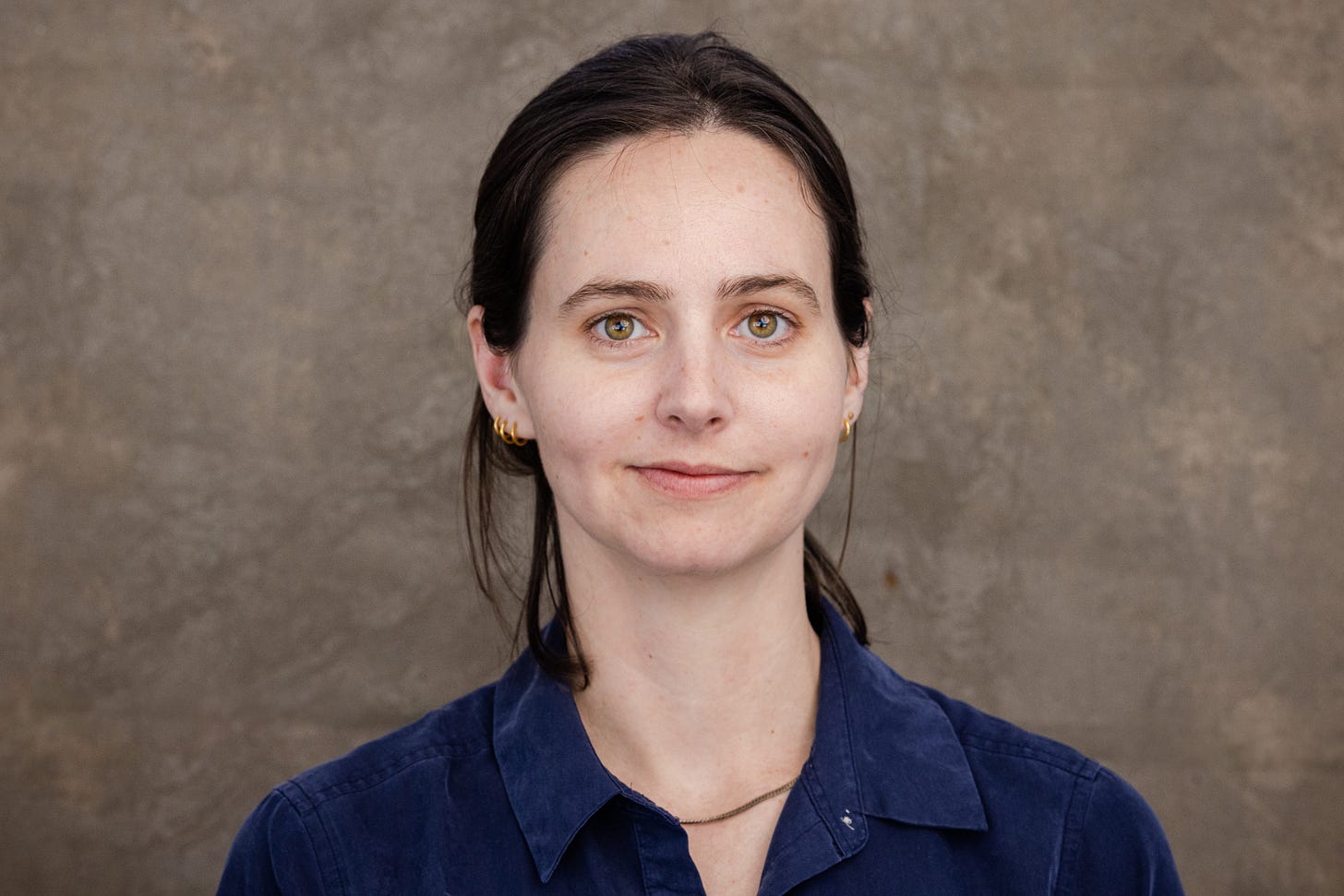Ann Friedman’s latest newsletter issue, “The Hot Mess Years,” begins with a reflection on adulthood. Friedman, who has been researching the topic for an upcoming book, introduces the idea of “emerging adulthood” as the time, generally in your 20s, when “the gap between desire and reality is painfully wide.” Friedman calls this phase the “hot mess” years—full of questioning, experimenting, and being lost.
According to Friedman, there is a prevailing academic theory that, by the time a typical person is 28, they should be exiting the emerging phase and entering proper adulthood. A person is considered “delayed” if they leave their 20s without making strides toward the stereotypical hallmarks of adulthood, such as living independently, getting married, and establishing a career.
Friedman contests this linear progression from emerging to mature adulthood. Instead, after interviewing dozens of people for her book, she believes we can go through emerging phases at different times, and often more than once. As Friedman points out, what’s a mid-life crisis if not a “hot mess” phase that takes place well into the so-called stable years? Perhaps instead of being a precursor, the emerging phase is wrapped up in, and crucial to, adulthood itself.
, the author and advice columnist at Dear Sugar, has been cataloguing the journals she wrote in her early 20s. When asked what advice she would have given to her younger self, she’s not sure she has any. Her younger self probably wouldn’t have listened—she was too busy being messy. Strayed’s younger self was too busy making mistakes and learning her way through the consequences. She was too busy being lost; which, of course, is the necessary precursor to becoming found.I admire Cheryl Strayed for many reasons, but chiefly because of how accepting she is of her messiness. Being messy and being lost are what allowed her to discover who she is on her own terms. That doesn’t mean it was pretty—her writing lays bare the pain involved with self-discovery and acceptance of all that’s terrible. But it’s comforting to hear that, looking back on her younger self, she likely wouldn’t have wanted things to happen differently.
Another perfectly messy person is Ali Pfefferman, the youngest sibling on Transparent. (Come to think of it, the entire show depicts messiness at its best.) In season 1, Ali’s best friend describes Ali as a “vaginal learner.” It’s meant as a joke, a silly contrast to the friend’s own designation as a “tactile learner.” While a tactile learner might need to touch or hold an object to gain information about it, the only way Ali, the vaginal learner, figures out what she wants and who she loves is by sleeping with the object(s) of her inquiry.
Like Strayed, Ali needs to experiment in order to figure out what’s right for her. I love the way this concept in both instances is rendered as necessary trial and error instead of through the extremely tired trope of shame.
I finally feel like an adult. It crept up on me gently until the feeling was palpable. Certainly, by external markers, I entered adulthood years ago. But it’s not about those. Over the past some-odd months, I’ve felt an internal shift entirely different from how I was before.
It’s hard to pin down why or when the shift happened. Part of it was learning to make the important decisions of my life without overly relying on feedback. Another part was getting rid of the shame I held around failure. At some point, I had received the faulty lesson that failing was something to conceal. That it was a sign of weakness.
Thankfully, I now know that lesson was wrong. I’m an adult because I see that failure is essential to becoming an adult, at least the type of adult I need to be. A person who can be honest about what she wants, has the courage to go after it, and has faith in herself that, no matter how badly she fails, she’ll be there to pick herself up again. That’s what I think adulthood means.
I’ve also come to think that it’s up to each of us to define when we’ve reached such milestones. For me, the knowing has to come from within, not from external markers or praise. I bet we all know people who meet the stereotypical adult checklist yet whose behavior does not equate to adulthood. I bet we’ve all felt like that person, too.
It seems that a lot of the external markers we associate with adults—marriage, homeownership, children, a career—are better put in the category of “adulting," of behaving like an adult as opposed to being one. It bothers me sometimes how much weight is placed on those markers for conferring adult status and how little correlation they may have to a person’s experience of adulthood.
I’ve rarely felt more childlike than I did at my law school graduation, wearing the cap and gown of a reputable institution and about to embark on a fun and impressive-enough job while dying of uncertainty inside. Being in school was easy for me: it was an automatic escalator propelling me toward someone else’s wishes and goals and plans for my future. I may have looked shiny and good on the outside, full of achievement and promise. But the inside was rotten. Like I’d been putting off figuring out who I was and what I wanted for so long, and now had the added burden of a fancy cap and gown to uphold.
The next few years were rocky—messy, even. Those were the years when I had to grapple with who I was and what I wanted to be. That took some trial and error. I accumulated scars. But once I emerged, I had the kind of confidence that’s only won after hitting up against walls and either climbing them or having to turn around. Only after I proved to myself that I could imagine a career I wanted, and then pursue and achieve it, did I feel worthy of that cap-and-gown moment. That was when I felt like an adult, in the career world at least.
It’s funny how I didn’t get praised for the inner work. The external world did not see what, to me, constituted true success. Perhaps some were put off by my messiness—the moving to different cities, switching jobs every year or two, experiencing workplace challenges. Perhaps others didn’t understand why I would forsake money or status for a job I believed in. I was finally off of someone else’s escalator and onto my own. Except instead of an escalator, it was a hiking path next to a stream flowing down from the mountains… ha.
Regardless, I also don’t share my successes enough externally. I reject and deflect praise until, after a while, it stops coming. It makes sense that something like a law school graduation or a home purchase are the ways people know when to congratulate me, even if those don’t always align with the celebratory moments I’d want.
Ann Friedman’s commentary validated a feeling I didn’t realize I had: the disbelief that these so-called typical markers of adulthood are what actually constitute the maturity that is worthy of praise. Instead, people become adults at all stages of life. And perhaps even after becoming an adult, we will have another emerging phase when we realize there’s still more of the inner child that needs to see the light. It’s only when we ignore those immature parts of ourselves that we get into trouble.
To me, the scariest adults are the ones who never let their messy selves emerge. Imagine if Lindsey Graham had been allowed to go to Provincetown for the summer in his 20s. Imagine if all the other closeted politicians had too. I’m not saying that everyone has the resources or ability to mess around for a decade—I’m aware that leisure is a privilege. But I’m also not saying that leisure is what’s required in the emerging phase.
Instead, I’d like if society became a bit more flexible about what constitutes adulthood, and when we’re all allowed to slip in and out of it. Recognizing, as adults do, that adults haven’t figured it all out. That failure—learning how to fail, and how to recover after—is a necessity. That we’re never too old to try new things.
I love the idea of embracing an “emerging adult” phase—a hot mess phase—for people at all walks of life without judgment. It seems I’m not alone. Just yesterday
envisioned that, "in the same way that people go to yoga and breathwork and pottery classes that there could be classes on how to love on others and keep friendships sinewy and robust and exciting." We should all have the ability to take a continuing education course on what it means to be alive.I used to feel like I arrived late to my own emergence: in my mind, I’d pretended to be an adult throughout my teen years until finally, well into my 20s, I felt safe enough to let the repressed teenager free. Now that I’ve gone through it once, I can say there’s something joyful about being lost. That with the pain of not knowing comes the truest expression of self.
How about you? Was there a time you’ve experienced dissonance between being praised for adulting and not actually feeling like an adult? Was there a moment when you felt it all click? Are you in the midst of an emerging phase, that beautiful unknowing, right now?
I’ll end with a photo taken by the talented Jovell Rennie that I think, for the first time, depicts the adult me. It feels great to be here: emerged.






Once again I feel seen. A few weeks ago I was reflecting on exactly this 👇🏽 [[ I swear my entire 20s was a joy-ride of utter madness, swerving from one drama to the next, jeez, I was a hot mess!😂 ]] So thank you for helping me own my hot mess years and the many, MANY frogs as NECESSARY EXPERIMENTS on the path to knowing what I DON’T WANT in order to know what I do 👏🏽👏🏽👏🏽👌🏽Love, love, love this bit 👉🏽 ‘... needs to experiment in order to figure out what’s right for her. I love the way this concept in both instances is rendered as necessary trial and error instead of through the extremely tired trope of shame.’ HELL YES. Shame, I am done with you! Because this is how humans grow. Thank you for your words ❤️🩹
I relate so much to this, especially not being praised for the inner work vs. the outer work on someone else’s escalator. Definitely a huge fan of messiness as well, and figuring life out on your own terms. This definition is definitely going to stay with me too -
“A person who can be honest about what she wants, has the courage to go after it, and has faith in herself that, no matter how badly she fails, she’ll be there to pick herself up again. That’s what I think adulthood means.”